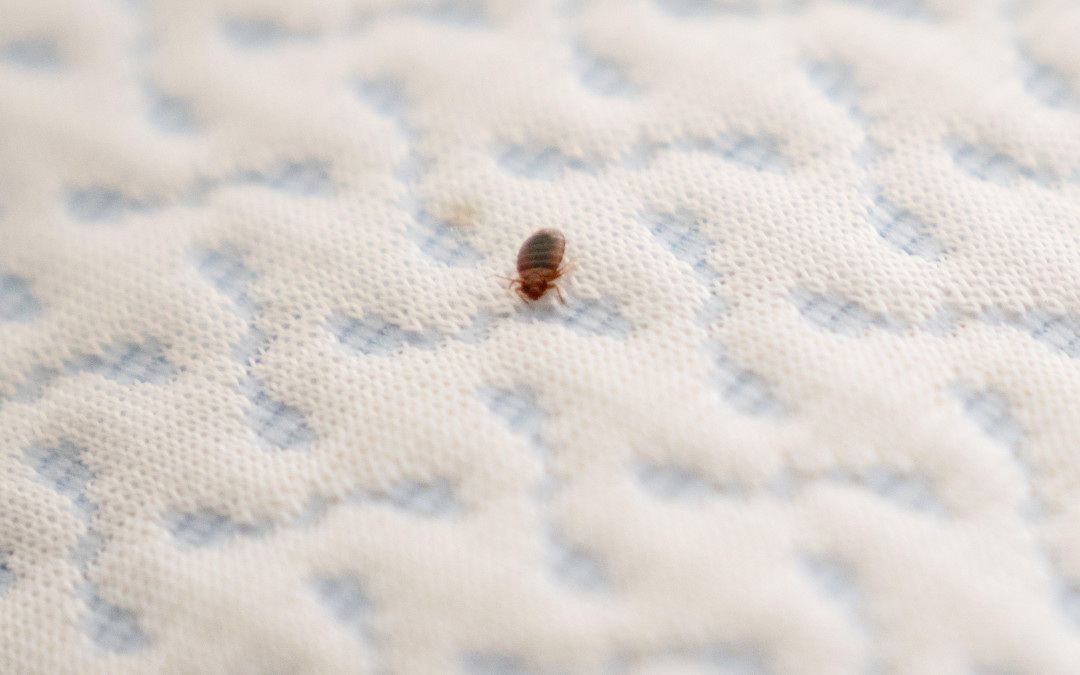Bed bug infestations can be a really serious issue that is becoming more prevalent every day, and the quest for effective bed bug eradication methods seems to be on everyone’s mind, with people always looking for new solutions for this issue.
Ozone’s effectiveness and whether it will kill bed bugs have been the topic of discussion for a long time, as it’s a powerful oxidant that is increasingly considered a formidable weapon against these bed bugs.
What is ozone?
Ozone, a gas composed of three oxygen atoms, is a potent oxidizer known for its ability to engage in chemical reactions that can dismantle other molecules.
This property is particularly effective against pests like bed bugs, as it can destroy their cell membranes. When bed bugs are exposed to ozone, it disrupts their internal regulation, leading to their demise.
Does ozone eliminate bed bugs?

Ozone is a powerful oxidant that can effectively rid your home of bed bugs. Ozone works by releasing molecules that attack and destroy the cellular structure of bed bugs. It penetrates deep into the cracks and crevices where these bugs hide, ensuring that every last one of them is eliminated. Unlike other methods that only kill the adult bugs, ozone also targets most of the eggs, preventing any future infestations.
Not only does ozone eliminate bed bugs, but it also has several other benefits. It is a safe and eco-friendly method of pest control, as it does not involve the use of harmful chemicals. Ozone generators are easy to use and require minimal maintenance. They can be used in any room of your house, including bedrooms, living rooms, and even your car.
Pros of Using Ozone Treatment
Effective against adult bed bugs
As a powerful oxidizing agent, ozone is capable of destroying bed bugs and their eggs by compromising their protective exoskeletons and disrupting their cellular membranes, which can lead to effective eradication.
Reaches hidden areas
The gas form of ozone allows it to penetrate porous materials like mattresses, carpets, and furniture, potentially reaching and eliminating bed bugs hidden within these items.
Eco-friendly
Ozone offers an alternative to traditional pesticides, providing a solution for those seeking a chemical-free method to address bed bug infestations. This is particularly appealing to individuals concerned about the use of chemicals in their living spaces.
Fast application
Some users have experienced success in eradicating bed bugs and their eggs with ozone treatment, suggesting that when used correctly, it can be an effective component in pest control strategies.
Cons of Using Ozone Treatment
Requires professional application
It’s highly recommended to get the help of professionals if you decide to use ozone as a bed bug treatment to ensure that the process is under control and prevent any health hazards that could occur due to mishandling the ozone generator.
Potential for property damage
Prolonged exposure to high levels of ozone can lead to the degradation of certain household items, including bleaching fabrics and aging foam rubber products rapidly.
Needs proper ventilation
The concentration of ozone needed to significantly impact bed bug mortality may not be safe for humans and pets. Exposure to high levels of ozone can cause respiratory problems and is especially risky for individuals with pre-existing conditions.
Limited effect on eggs
Ozone treatment alone may not be enough to eliminate bed bug’s eggs. It often requires integration with other treatments, such as chemical treatments and dusting, to create a comprehensive approach to eradication.
How Long Does It Take for Ozone to Effectively Eliminate Bed Bugs?
Research indicates that a high concentration of ozone, specifically at 1800 parts per million (ppm), can lead to a 100% mortality rate in adult male bed bugs after 150 minutes of exposure. This finding underscores the potential of ozone as a bed bug treatment, especially when considering the challenge of pesticide resistance that bed bugs often present.
What Are the Risks of Using Ozone to Kill Bed Bugs?
Health Risks
- Respiratory Issues: Individuals with pre-existing respiratory conditions should be particularly cautious, as ozone can exacerbate such conditions. Ozone machines can cause respiratory symptoms such as coughing, throat irritation, and shortness of breath, with higher concentrations potentially leading to increased asthma attacks and hospital admissions.
- Eye irritation: Studies show that high concentrations of ozone could cause itchy eyes, blurriness, and dry eyes, among other issues.
- Increased Risk of Infections: The high concentrations of ozone required to significantly impact bed bug mortality are not always safe for humans and pets.
- Cardiovascular Issues: There’s a correlation between direct exposure to ozone and cardiovascular problems, as ozone gas has been responsible for hundreds of thousands of coronary heart disease admissions.
Property Damage
- Material Degradation: Ozone gas is known to be a very powerful oxidant, and it could cause degradation to household items that are made from materials such as rubber, latex, fabric, and even plastic.
- Lingering Odor: When the concentration of the ozone gas used in the treatment is high, it could leave a faint chemical smell in the properties that got exposed to the gas, which could be bothersome to some people.
- Discoloration: Ozone gas has a similar effect as bleach, as it’s a very strong oxidant, which means that, just like bleach, it could cause discoloration.
Treatment Effectiveness

- Limited Effect on Eggs: Ozone may not penetrate all hiding places where bed bugs reside, such as deep within mattresses or tiny crevices, which can compromise the overall efficacy of the treatment.
- Incomplete Eradication: Bed bugs have shown varying levels of resistance to ozone, indicating that ozone treatment may not always guarantee complete eradication of the infestation.
- Timing and Re-treatment: The ozone generator needs to be placed in the infested area for 3 to 10 hours per room, depending on the severity of the infestation, which means it will take a while to fully eradicate the bed bug infestation.
Mitigating Risks Associated with Ozone Treatment for Bed Bugs
Always hire licensed professionals
Before using ozone as a treatment for bed bugs, it is recommended to consult a professional pest control expert. They can provide valuable insight into whether ozone is appropriate for your specific situation and suggest a combination of treatments for better results.
Avoid the treated area
Evacuate all humans and pets from the area before activating the ozone generator. Remove or protect electronics and other items that may be degraded by ozone exposure.
Wear protective gear
Always make sure that you’re wearing protective gear when the ozone generator is running, as it could cause respiratory issues, eye irritation, and even skin discoloration.
Follow-up treatments
To give the ozone time to disperse, a two-hour waiting period is necessary before reentering the treated area. Not only should you wait until then, but it's also a good idea to keep everyone at least thirty feet away for an additional hour.
FAQs
Is ozone better at eliminating bed bugs than other methods?
While ozone shows promising results, it’s better to use it as part of a broader pest management strategy and not as a standalone solution.
When used in conjunction with other methods, like insecticides and diatomaceous earth, ozone can contribute to a more comprehensive extermination process.
Is ozone harmful to the environment?
Yes, ozone has a negative impact on the environment because it limits the amount of carbon dioxide that plants may absorb and release as oxygen, and it impedes the process of photosynthesis.
Does the effectiveness of ozone in killing bed bugs vary depending on the life stage of the bed bugs?
Yes, the effectiveness of ozone can vary depending on the life stage of the bed bugs, which may influence the choice of treatment method. This depends; however, this discrepancy suggests that ozone might only sometimes be reliable as a standalone treatment and should be used as part of a broader pest management strategy.
What is the most efficient concentration of ozone needed to kill bed bugs?
Ozone is capable of killing bed bugs and their eggs, with a laboratory setting achieving 100% mortality for adult bed bugs at 1800 ppm for 150 minutes.
What are the other methods that I can use to kill bed bugs?
There are many methods that you can use to combat bed bug infestations, such as glue traps, store-bought or DIY Insecticides, as well as using desiccants, or you can clean your mattress with really hot water (115 degrees Fahrenheit–46.1 degrees Celsius) or really cold water (32 degrees Fahrenheit–0 degrees Celsius)
Does ozone kill bed bugs?
Ozone is a powerful oxidizing agent that is often used for various types of disinfection and odor removal. However, when it comes to bed bugs, there is limited evidence to suggest that ozone alone can effectively kill these pests. Bed bugs are resilient creatures that can withstand extreme conditions, including high levels of ozone.
How long does it take ozone to kill bugs?
the time it takes for ozone to effectively eliminate bugs depends on several factors such as the size of the infested area and the concentration of ozone used. In general, it can take anywhere from a few hours to several days for ozone to completely eradicate bugs. The use of ozone generators can speed up the process by releasing high levels of ozone into the air, ensuring that bugs are killed more quickly.
Will ozone machines kill bed bugs?
Ozone machines have been widely used in various industries for their ability to eliminate odors and kill bacteria and viruses. However, when it comes to bed bugs, the effectiveness of ozone machines is questionable. While ozone gas can be lethal to insects and small organisms, it may not necessarily penetrate deep into the crevices and hiding spots where bed bugs typically reside.
Conclusion
It’s important to highlight ozone's potential as a treatment method and the precautions that must be taken to use it safely and effectively. As with any pest control strategy, it is essential to consider the full range of implications before deciding on the best course of action.
For instance, while ozone generators can be effective, they demand careful handling to ensure that the gas reaches all infested areas without posing risks to occupants. Additionally, bed bugs have shown varying levels of resistance to ozone, indicating that ozone treatment may not always guarantee complete eradication of the infestation.
Jessica H.
Jessica is a reviewer, writer, and sleep enthusiast at Sleepiverse. Jessica graduated with her master's degree in Nursing research and education. She is a registered nurse and currently works in the Intensive Care Unit. Since becoming a nurse, Jessica has worked the night shift, which means a disrupted sleep schedule. Knowing she needed to function at her best while caring for patients at night, she spent a lot of time researching how to sleep well with a difficult schedule.


